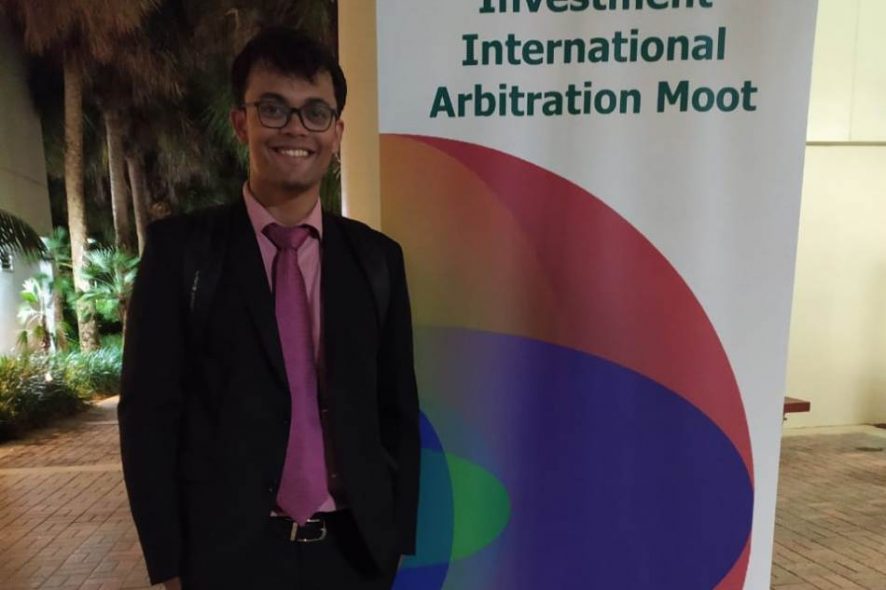Ayush Kashyap is an avid mooter who was recently adjudged the Best Speaker In the South Asian Rounds of the Prestigious FDI International Arbitration Moot, 2019 held in Miami. He has been interviewed by EBC/SCC Online Student Ambassador Sharon David.
Q1: Hi Ayush! Tell me something about yourself?
Thank you, Sharon. I’m in the fourth year at Hidayatullah National Law University majoring in Corporate and Trade & Investment laws.I am still trying to discover where my niche is or whether finding one is really required. I find constitutional law and international arbitration very interesting too.
Q2: When and why did you choose to pursue Law as a career?
In the 12th grade, I was a science student sailing on two boats – studying both Mathematics and Biology. I’ve always wanted to keep my options open. And a career in law allowed just that. I wanted to do something which also allowed me to indulge my passion for reading. The breadth of subjects that we study in law school is immensely wide and that makes for an interesting experience.
Q3: You were recently adjudged the Best Speaker in the South Asian Rounds of the FDI International Arbitration Moot,2019, please share your experience with us.
It came as a very pleasant surprise. While my teammates Prachi, Shrinkhala and Anuraag were joking around that I might win, I really didn’t think I would. Speaker citations are anybody’s guess because judges have very different standards and expectations from the speakers.
FDI is a terrific moot. The problem is on investment arbitration where a foreign investor brings arbitration claims against a state. It has the old-world charm of public international law combined with international arbitration. The moot problem is released in February and the South Asian rounds were organized in late August. Indian teams are required to prepare skeletal briefs for the rounds at Delhi.
Q4: How did you prepare yourself for such a prestigious moot?
We started by developing a background in investment law over the preceding winter break with Principles of International Investment Law by Prof. Christoph Schreuer and Prof. Rudolf Dolzer, and The International Law on Foreign Investment by Prof. M. Sornarajah. Both these books are excellent resources – authoritative yet accessible to a beginner. Once the problem was released, we divided the procedural and merits parts among the four of us and devoted ourselves to the research. While drafting a skeletal memo might appear easy, it is quite a task to refine one’s arguments and state it precisely with the exact authority on the point.
After the South Asian rounds, we were invited to participate in the Global Oral rounds which required us to draft a 16,000 word memorial for both sides in three weeks. That sent our sleep schedules haywire but we got the job done! It would perhaps be advisable for the South Asian rounds to be preponed by a month as it’ll allow Indian teams enough time to mentally prepare themselves and draft a full memo.
Q5: How has this helped you evolve as a law student?
As law students, most of our training happens during our internships where we not only learn legal research but also pick up important cues on framing arguments. The moots I’ve done have shown me the next step – drafting a brief and arguing the case. When you’re before a bench or a tribunal, there is no such thing as being over-prepared. Moots always underline for me the value of diligent research despite all the glamour associated with oral argumentation.
Q6: What is your advice for students looking to do well in moots?
I think it helps to be invested in the moot you’re doing without fixating on the results. There are many variables that can affect your results because judges are human after all. But give it the best shot you can. When it’s over, the one regret you do not want to have is that you could’ve worker harder. I also feel it is important to celebrate the journey. The long hours you spend in the library with your team may seem like an ordinary event but you’ll look back at it fondly. Perhaps we should all live in those moments more.


